On August 20, the finals of the 2022 Tsinghua International Case Analysis Competition of Public Policy on Sustainable Development Goals (SDGs) were successfully held online. This competition was co-organized by the China Case Center for Public Policy and Management (CCCPPM) at SPPM of Tsinghua University and the Institute for Sustainable Development Goals of Tsinghua University (TUSDG), and sponsored by XAG and McDonald’s China.
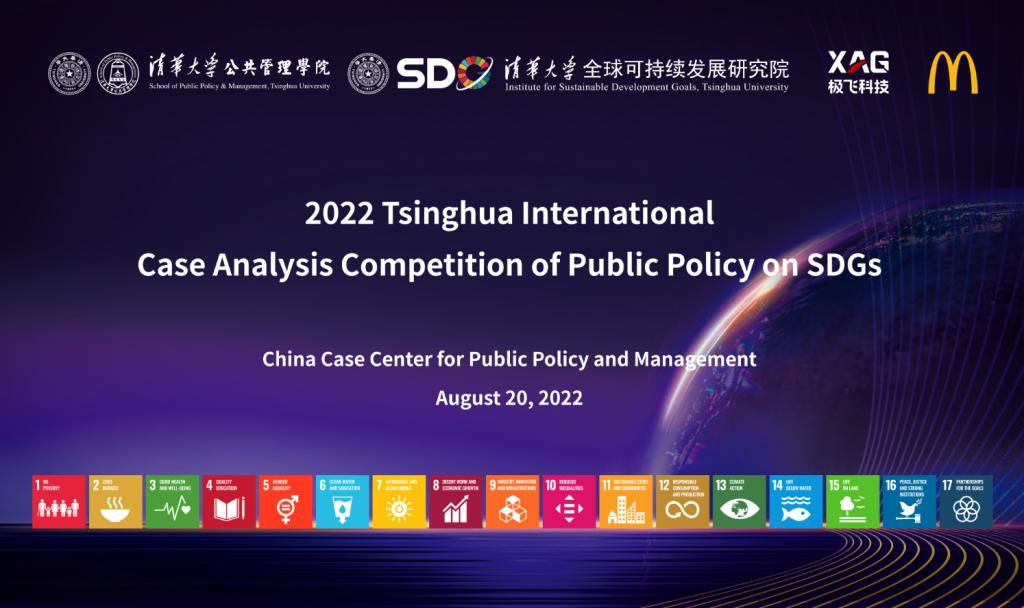
The 2030 Agenda for Sustainable Development, adopted by all United Nations Member States in 2015, provides a shared blueprint for peace and prosperity for people and the planet, now and into the future. At its heart are the 17 Sustainable Development Goals, which are an urgent call for action by all countries – developed and developing – in a global partnership. They recognize that ending poverty and other deprivations must go hand-in-hand with strategies that improve health and education, reduce inequality, and spur economic growth – all while tackling climate change and working to preserve our oceans and forests.
The competition aims to encourage global students from different courtiers, cultures, universities and professional backgrounds to pay attention to sustainable development public policy issues, develop academic analytical skills and critical thinking abilities by discussing complex and real-life scenarios.
This year’s competition attracted 54 teams from 48 universities and colleges across China, the U.S., Brazil, Japan, Canada and Italy, with a total of 182 participants. Students selected case topics around the Sustainable Development Goals and worked in teams to study real-world challenges, interview organizations and individuals, discover interesting phenomena, and put forward innovative policy solutions for sustainable development problems. After two rounds of selection during the past four months, 16 undergraduate student teams and 6 master’s student teams entered the final competition.
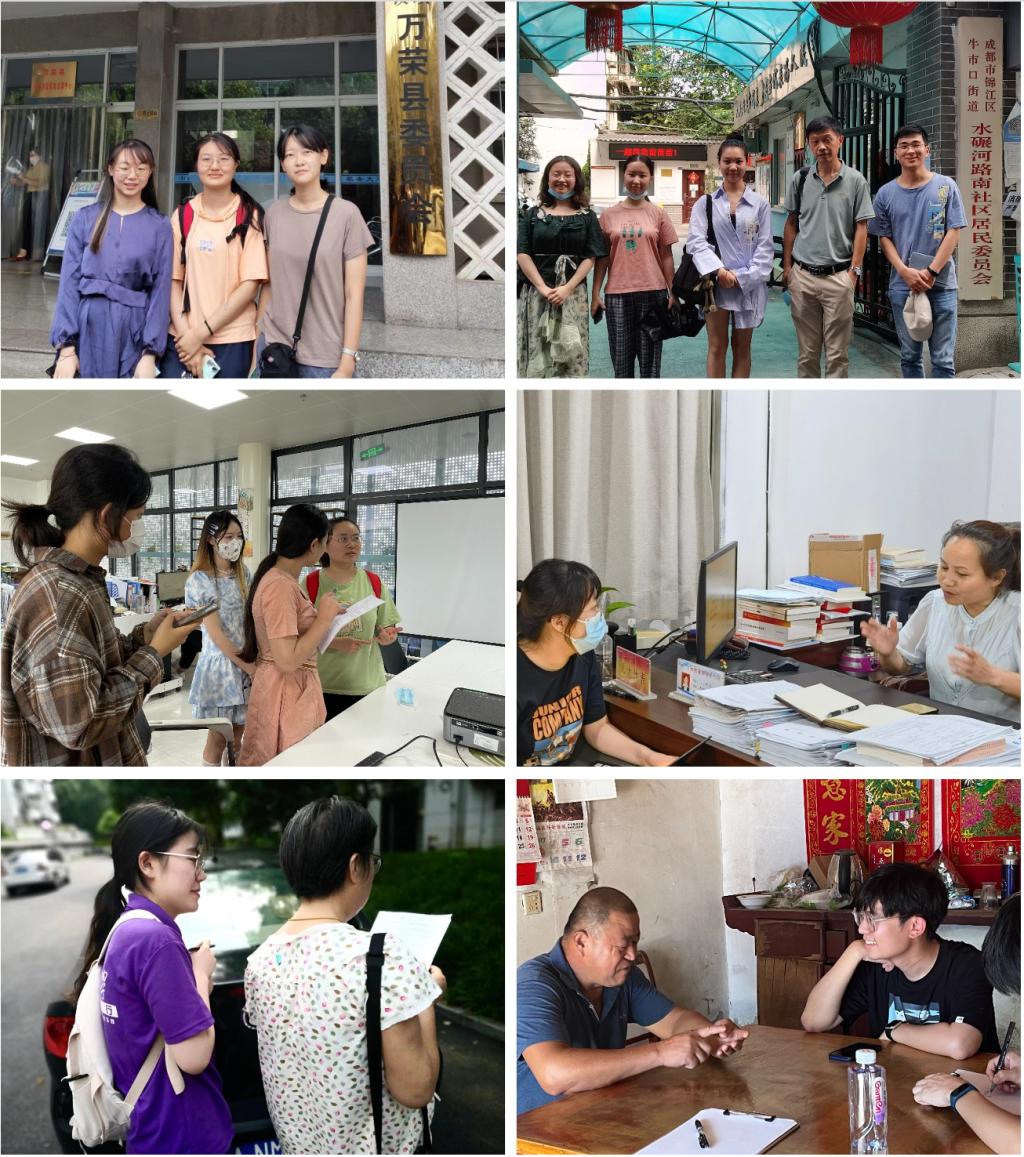
Students Conducting Field Research
The judges for the final competition were SPPM’s Associate Professor Li Yingbo, Associate Professor Chen Jidong, and Assistant Professor Zhang Fang.

Judging Panel
(Left to Right: Zhang Fang, Li Yingbo, Chen Jidong)
Each team spent eight minutes for presentations on topics such as Family-School-Society Collaborative Education Mechanism, Sustainable Production and Consumption, Poverty Reduction, International Medical Aid, Power Rationing, and etc. Then they took seven minutes to answer questions from the judging panel.
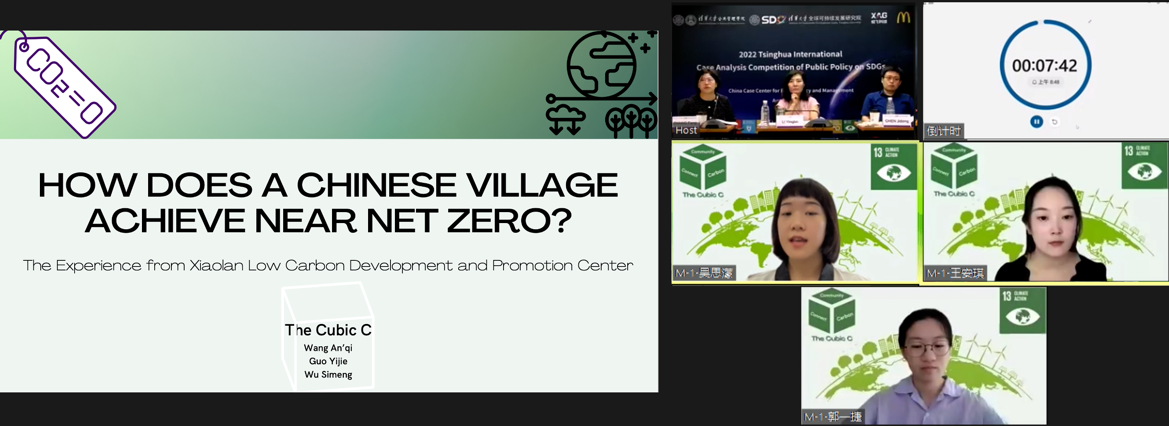
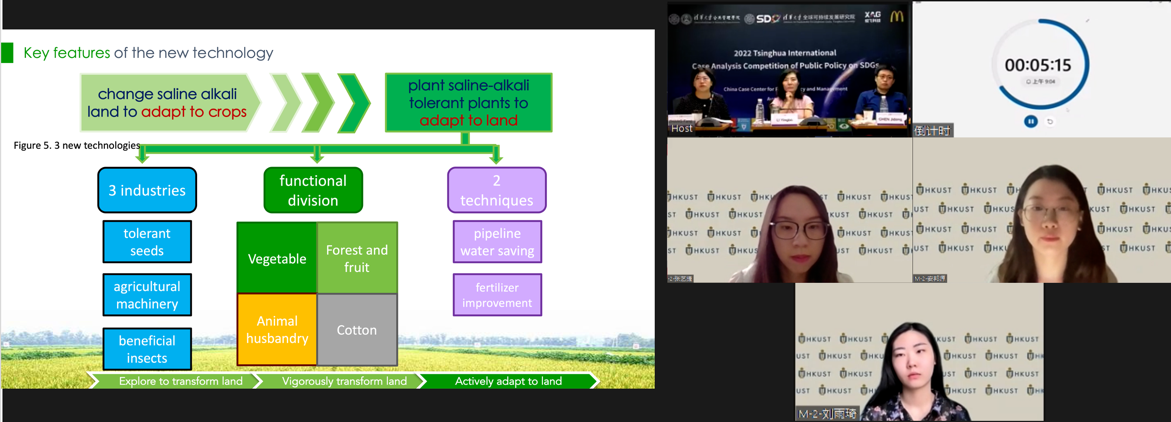
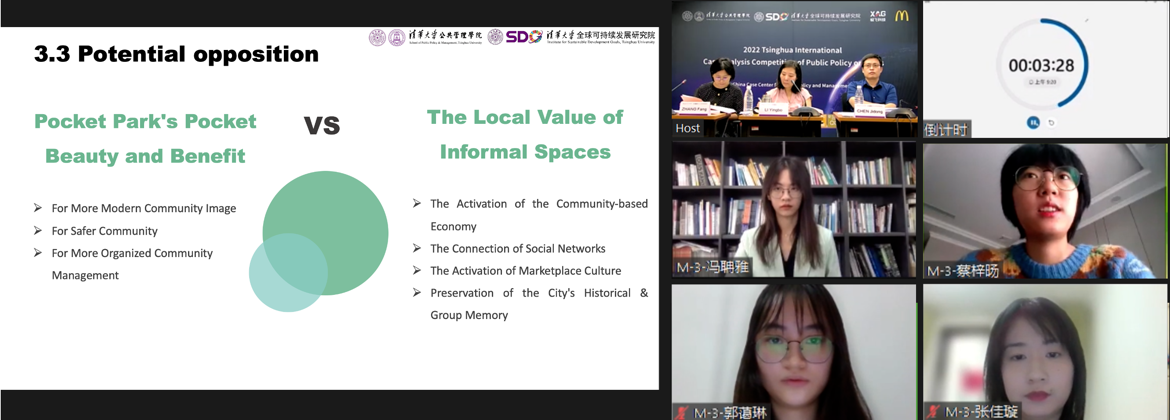
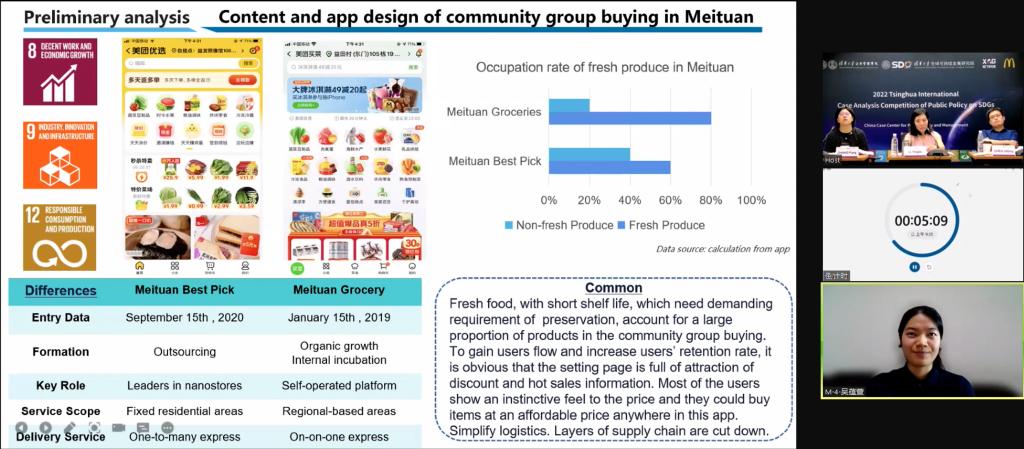
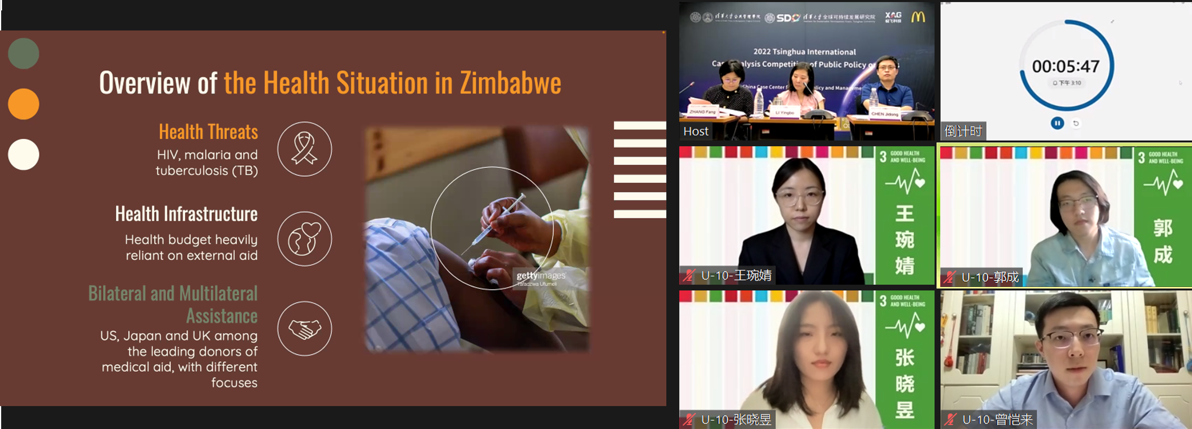
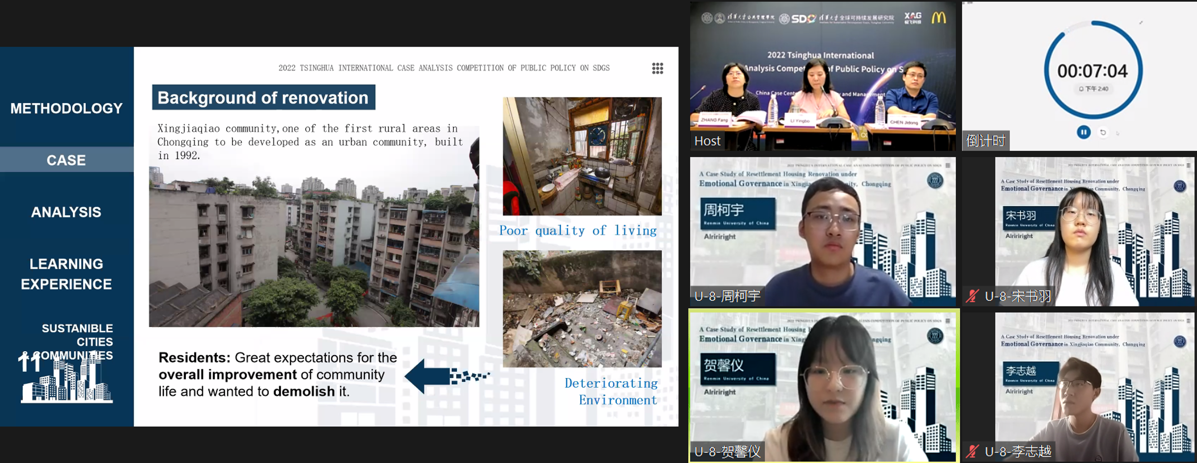
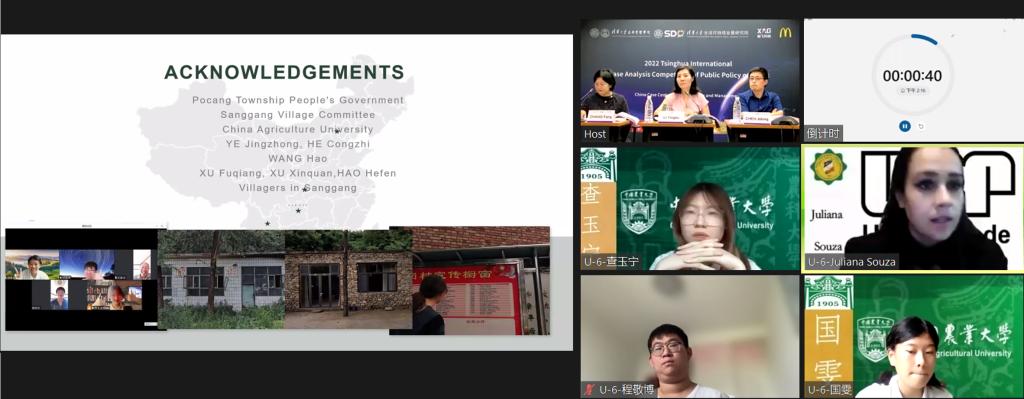

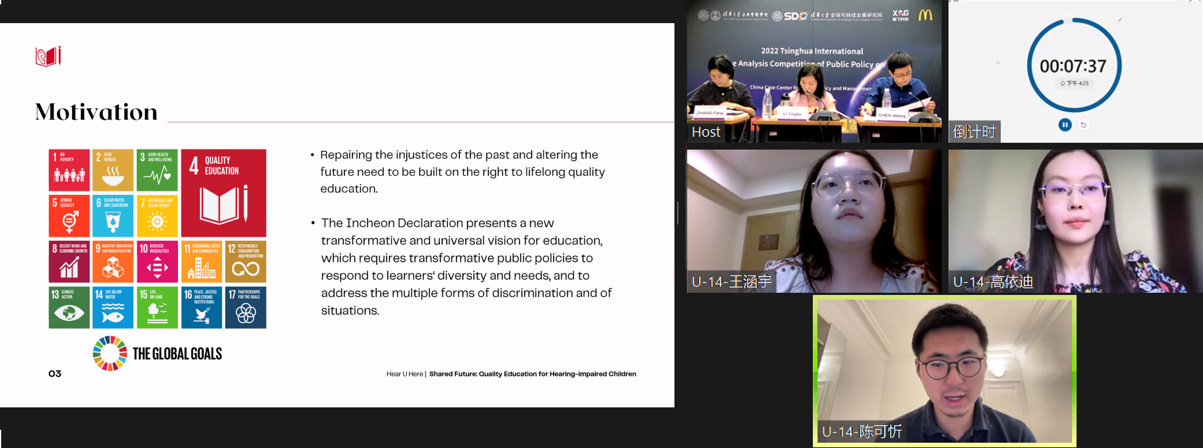
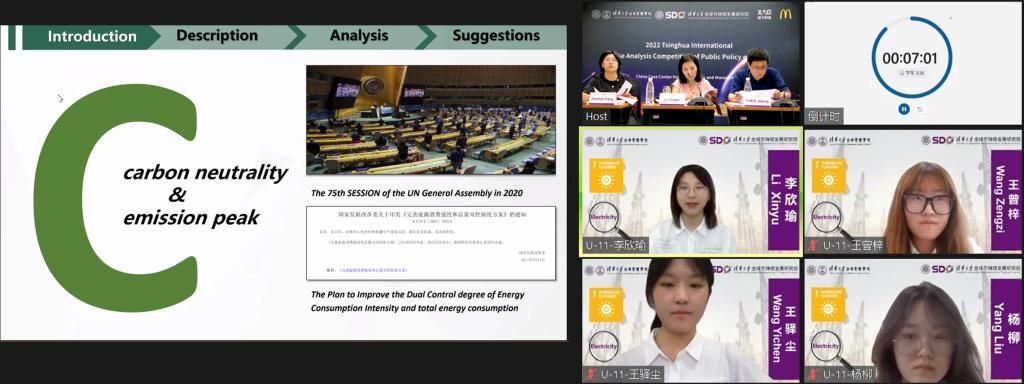
Students Competing Online
The award ceremony was held in the evening. The guests present online and offline included Zhu Xufeng, Executive Dean of SPPM and TUSDG, Tong Wei, Senior Director of International Affairs at XAG, Mu Ling, Assistant Dean of SPPM and Director of CCCPPM, Zhang Yun, Associate Director of CCCPPM, and the judging panel.
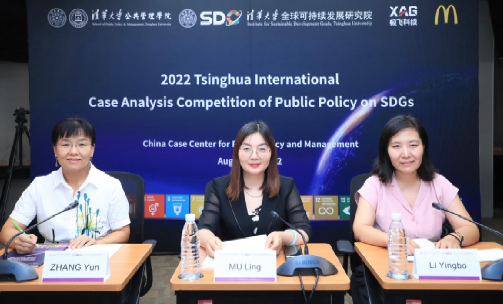
Award Ceremony Offline Site
(Left to Right: Zhang Yun, Mu Ling, Li Yingbo)
Zhu Xufeng delivered closing remarks. He expressed his sincere gratitude to XAG and McDonald’s China for their sponsorship on behalf of the SPPM. He also congratulated all the students for making it to the finals and thanked them for their hard work in promoting SDGs implementation. He pointed out that all the case studies aimed to tackle the three major human challenges – social, economic and environmental challenges – which are the core content of the 17 SDGs adopted by the world leaders in 2015. He encouraged young students to take a lead to address the issues of sustainable development with creativity, courage and actions.
Zhu Xufeng introduced that the SPPM selects excellent candidates from the competition annually to study at Tsinghua-Geneva Dual Master’s Program for SDGs to cultivate young talents in the field of sustainable development and global governance. He welcomed all students to apply for this Dual Master’s Program for SDGs.
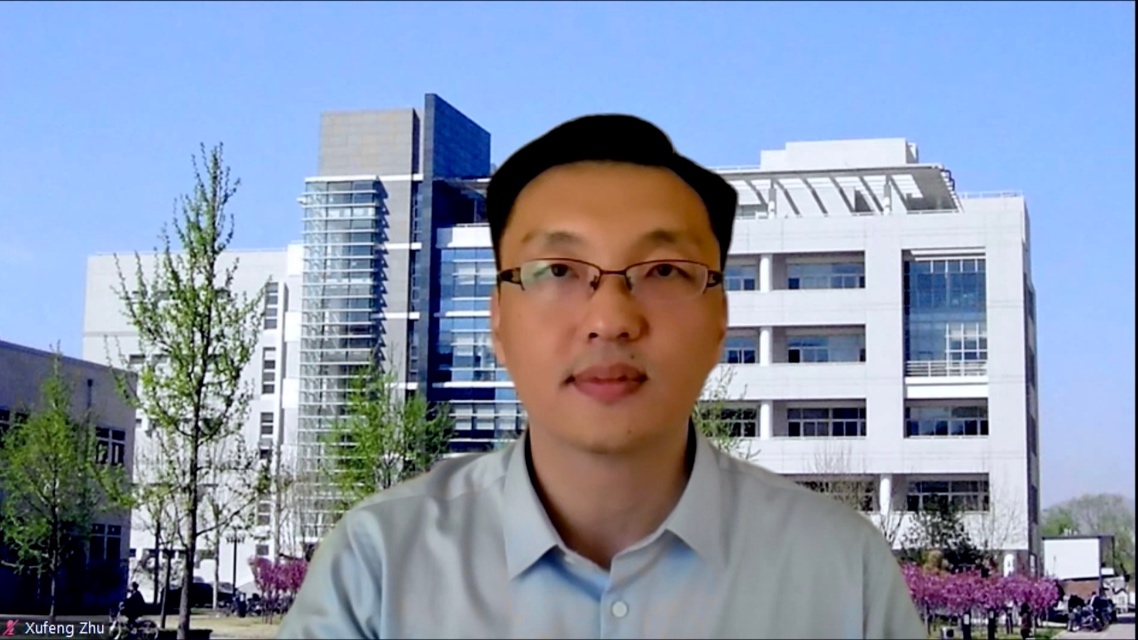
Zhu Xufeng Delivering Opening Remarks
Mu Ling gave a closing speech. She expressed her pleasure to see that young talents are passionate about the sustainability topics, have unique views on real-world challenges, and try to find solutions for sustainable development problems. She said, “Developing and analyzing cases is an effective method to link theory to practice, which helps students apply and integrate knowledge, skills, theories and experiences.” She hoped this competition provides an opportunity for everyone to practice case study method, conduct field research, delve into the complex dimensions of public policy making, implementation and evaluation process, and finally develop some high-quality case studies.
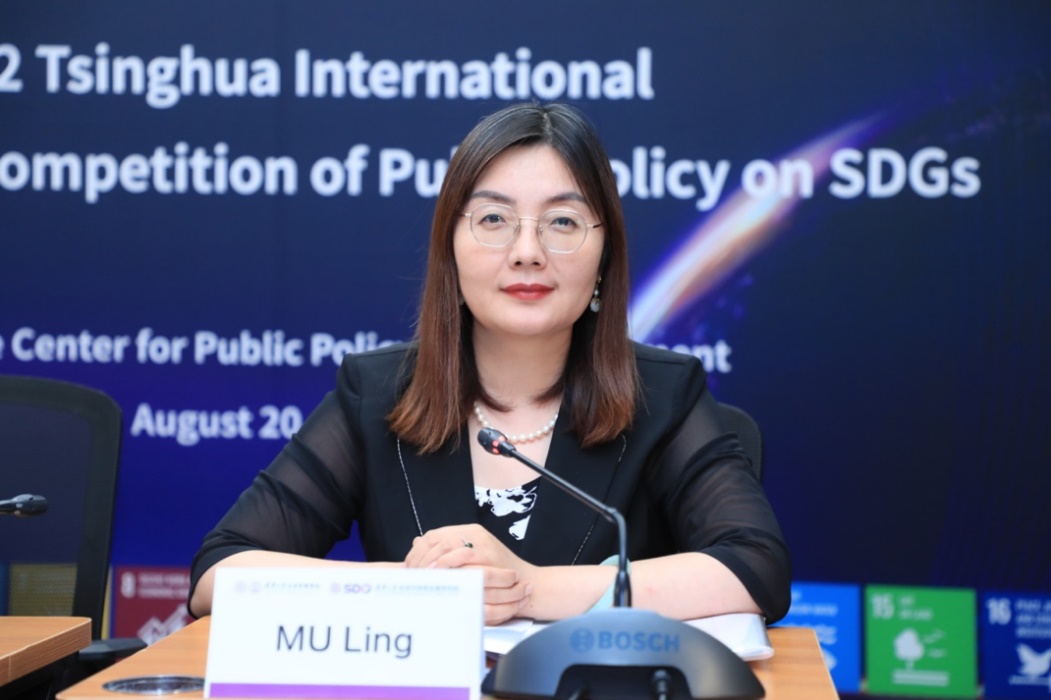
Mu Ling Giving Closing Speech
Based on the aggregate performance of case analysis report writing, final presentation and Q&A session, the judging panel selected eight teams in total for the first, second and third prizes. All other finalists received honorable mention awards. Zhu Xufeng and Tong Wei announced the final winning teams.
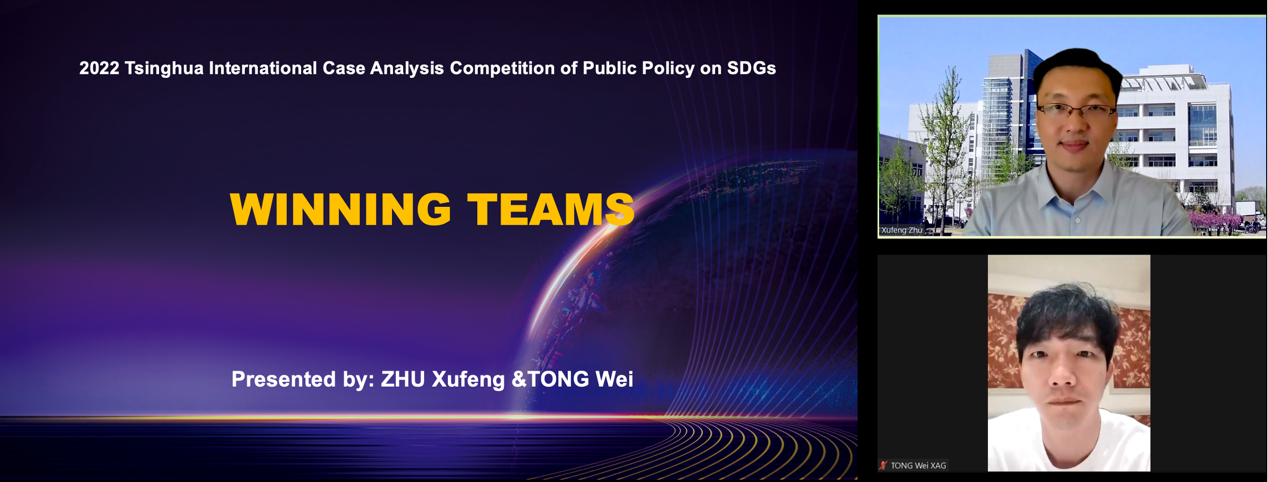
Zhu Xufeng and Tong Wei Announcing Final Winners
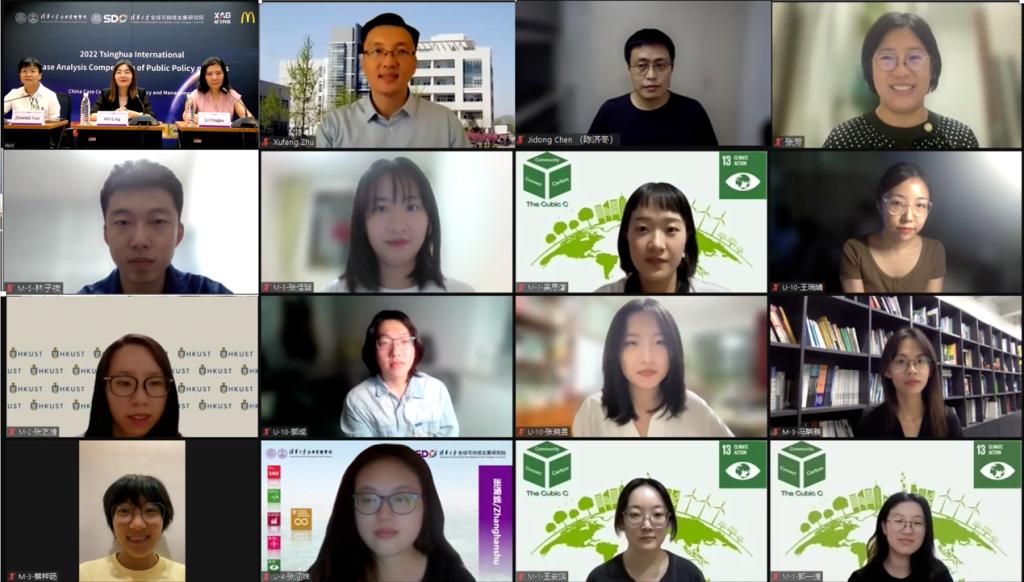
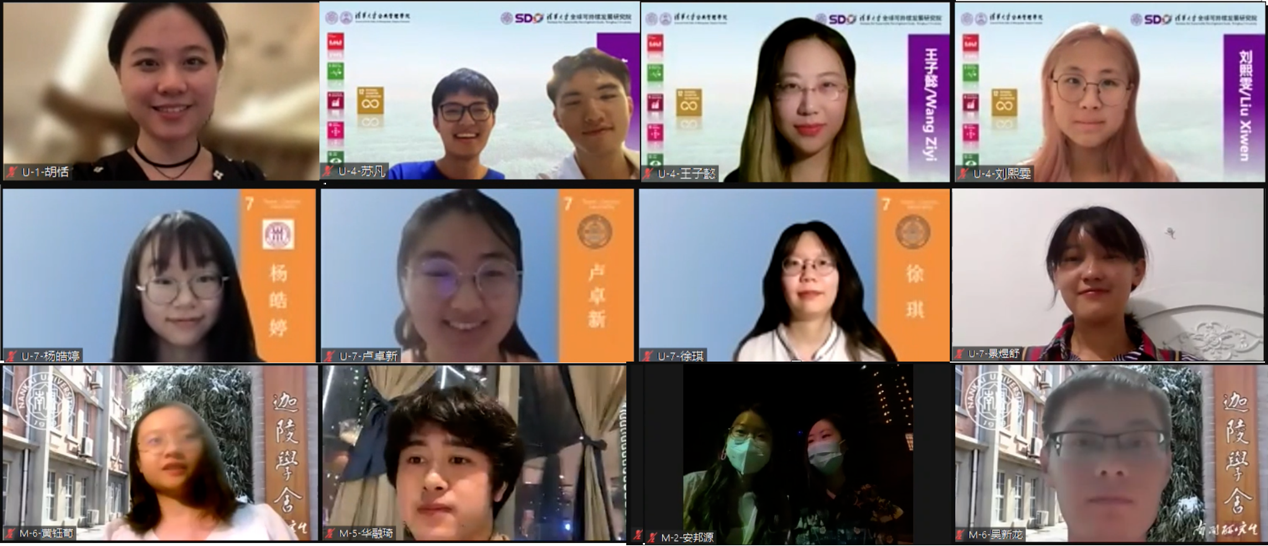
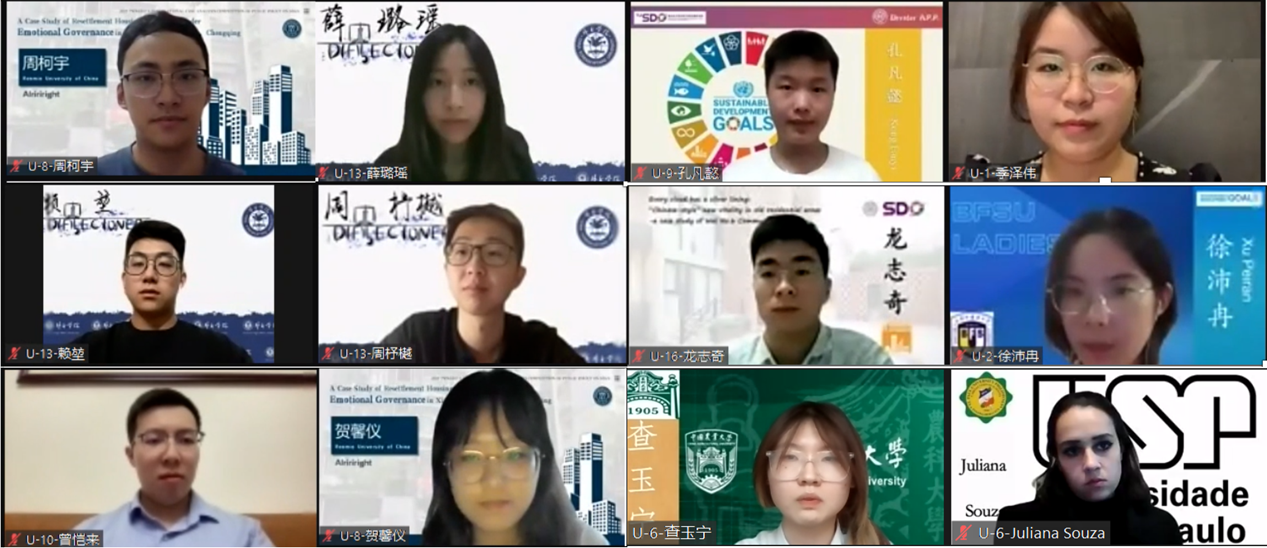
Photos of Contestants
Experience Sharing
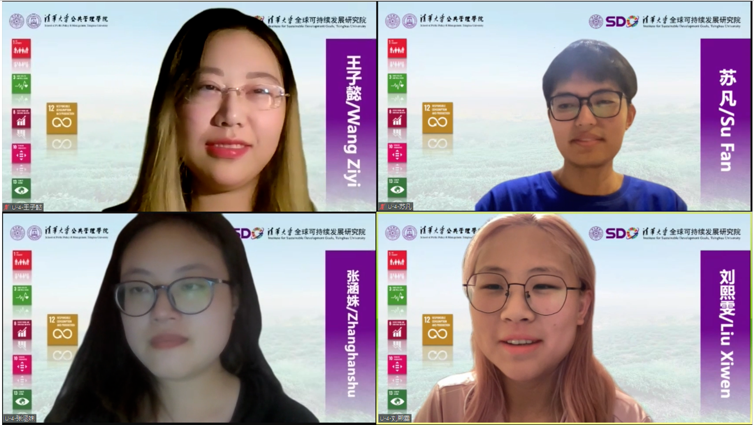
Triton Team
First Prize Team of Undergraduate Student Group
When Prof. Zhu announced the first prize, we were in disbelief at first, and we were overjoyed. The tea fields of Jingnan Village, volunteers of the Angel Association, and the scene of chatting with the villagers while weeding came to our mind. What is sustainable development? How can an NGO cooperate with villagers and the government to demonstrate a sustainable development practice with Chinese characteristics? Over the past few months, we've been out in the fields looking for answers. After countless brainstorms, and countless times of reinventing the wheel, we came here with the answers we found, and the final result also proved to us that the story of sustainable development is all around us. The practice of these SDGs also needs us to reconstruct, turning the wisdom from China's fields into a boost to promote the realization of the 2030 Sustainable Development Goals.
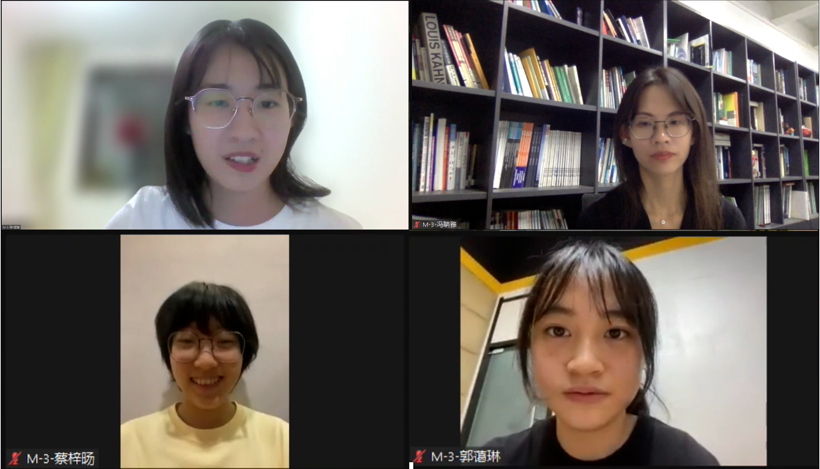
The Sustainable Team
First Prize Team of Master’s Student Group
Our team would like to thank the CCCPPM and the TUSDG for holding this competition, which has provided an extremely valuable communication platform for the students of public administration in China and even around the world. We selected pocket parks as the research object, and through multiple investigations, we deeply understood the demands of all stakeholders and touched the pulse of urban community development. From May to August, we went all the way to the preliminary and semi-final, and achieved unexpected good results in the final. Every step forward is a reflection of the sweat and effort of the team members. We are very grateful for the recognition of the judges. In the future, we hope to take the questions raised by the judges as our new starting point, gather the strength of the two professionals, and continue to improve and deepen our case study.

Source | China Case Center for Public Policy & Management

